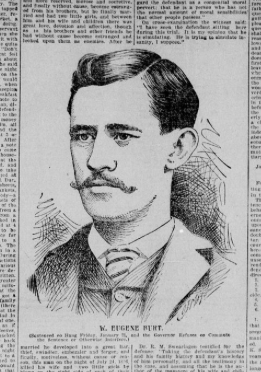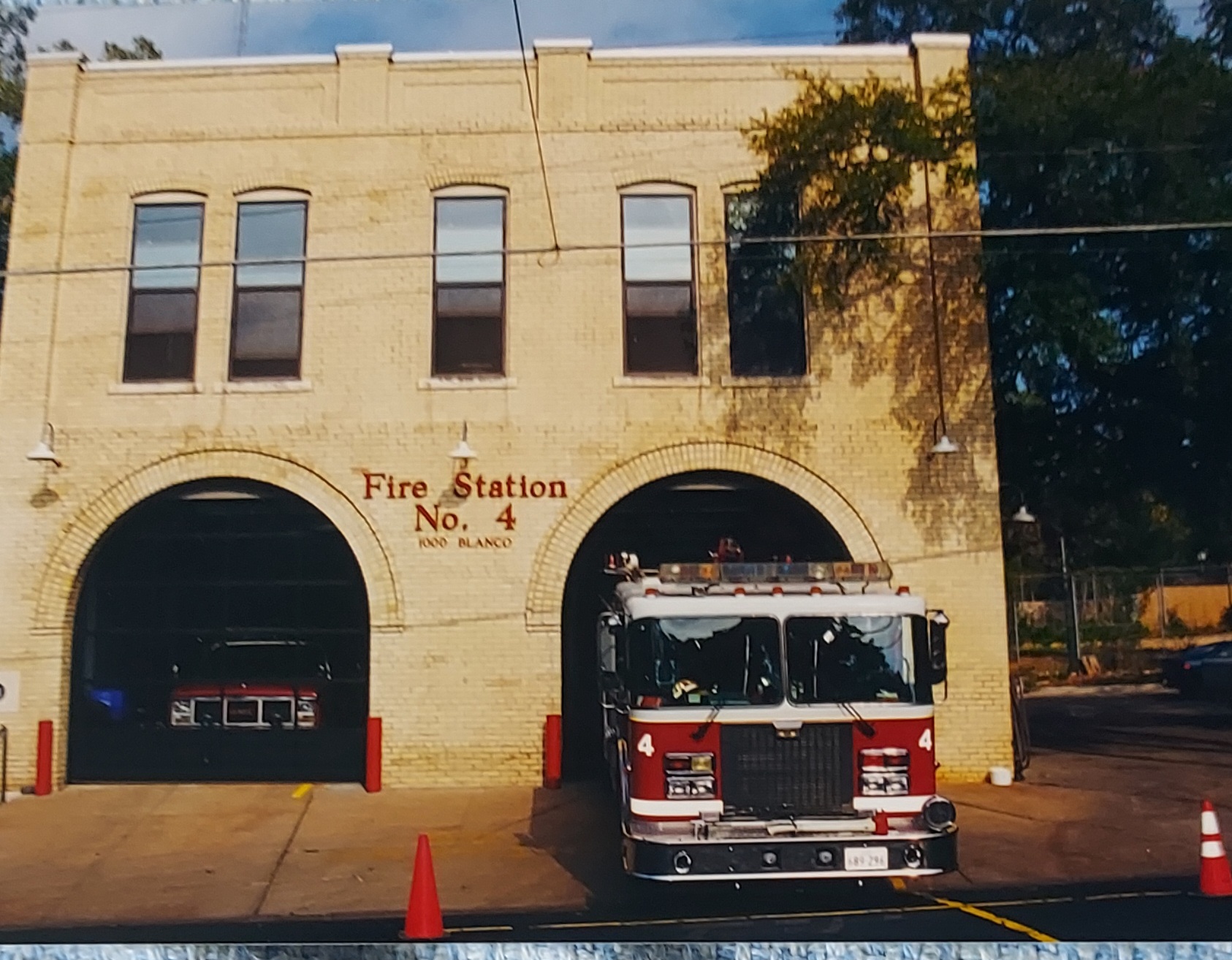This is the – lost in time- story of a man in Austin who murdered his family and then, represented by his family, plead insanity. Below are the details of the murder. At the end is a link to the trial that ensued.
This question was put to the medical witnesses: Suppose the defendant was a married man, with a wife and two children, the children being about 2 and 4 years; that on the night of the 24th of July, 1896, he and his wife were at home at half-past 8 or 9 o’clock, when, by the nurse, the younger child was delivered to him, and the elder to the wife; that after the lapse of a little while, he went to the dining room, filled a bottle with milk for such younger child, then took the younger child in his arms, and with a bottle of milk went upstairs to the room where he and his wife and the children slept, leaving the wife, the elder child, and the servant in the lower rooms; that this was the last ever seen of the younger child alive. After a time, the servant departs and does not return until 11 o’clock. All is quiet in the house at that time. A day of two before this he was seen coming from the stable, with a grass sack in his hand, which contained something. At some hour of the night, in their bedroom, the defendant killed his wife and two children, by striking each of them in the right temple and side of the face with a hatchet, crushing the bones of the face and fracturing the skulls; that he then tightly tied around the throat of each a handkerchief, sufficiently so to produce strangulation and suffocation; then enveloped the body of the wife, except the feet, in a blanket, and wound around the blanket ropes so as to keep the blanket in place and the body enveloped; he ties the hands and feet of the two children with wires and other ligatures, they being in their night clothes. He then conveys the bodies, by some means, in his arms (or by the lowering of them from a window, or through it, casting them out) from the upstairs room to the lower floor, and thence transporting them through a difficult, circuitous route to an underground cistern in the basement of the house, and cast the three bodies therein, and then nailed down the top of the cistern, which had been ripped off to admit the bodies; there was water in the cistern sufficient to submerge the bodies; the water in the cistern was in daily use by the household theretofore. He took the handle off the cistern pump and secreted it. By some means, or care used, not a stain of blood had been left on the floors, on the walls or furniture in the room where the killing was done, nor on the way from that room, inside or outside of the house, on the way to the cistern. The servant returned at about 11 o’clock, and slept in the house, but heard no noise, except a faint, dream-like remembrance of hearing a child cry. The next morning, about 7 o’clock, he tapped at the servant’s door, awakened her, requested her to rise and go to market, a thing she was not in the habit of doing. He was not seen again until the servant returned from market. On her return, she took the teakettle, proposing to fill it with water; and in taking hold of it it made a noise, when the defendant said to her, “Don’t use water from the cistern, as a cat fell in there last night.” Some questions about the wife and children arose, when he said that he had had some trouble in the night and had sent them to San Antonio on the 5 o’clock a. m. train, but that they would be back Tuesday or Wednesday, when everything would be ready to go keeping house at the Scott place. His breakfast being prepared, defendant gave a note to the servant, to be carried to a cartman, directing him to go to the store of defendant’s brothers and procure and bring to the house some boxes; he also gave her some money to buy some nails and bring to him, all which was done as directed, and the cartman on bringing the boxes was requested to return at 3 or 4 o’clock. He ate his breakfast; he sent the servant with a note to a second-hand furniture man to come and look at the furniture and other household effects. He came and looked at the effects, and asked the price wanted, and was told $150, but finally agreed to take $65, and the trade was consummated at those figures, and the goods delivered. During the day the bloody clothing, sheets, bolsters and pillows, and other blankets, comforts, all more or less bloody, a bloody, hatchet, the hats and bonnets of the wife, and miscellaneous clothing of the children (not bloody), bloody cotton from a mattress, portions of the ticking from a mattress, also bloody, were all packed in the packing boxes and nailed up, and at 4 o’clock delivered to the cartman to be conveyed to the transportation office for shipment from a fictitious person to a fictitious person at Houston, Texas. The addresses on the boxes were written in a feigned handwriting by defendant. During the day he had various money transactions with different persons, wrote various notes, tore some up, and others were delivered to the persons to whom written. He was in or about the house the greater part of the day. In the evening the milkman came, whom defendant met at the door and said, “this is the milkman,” got a pitcher for milk, and told him the family had moved to 912 Rio Grande Street (there being no such street number), and that the next day he, the milkman, would find in the milk pitcher two tickets instead of one At that time he appeared weary, as if having been hard at work, in shirt sleeves, breathing hard, and face flushed. He packed three valises and put them in the back premises of the next house during the evening. Later in the evening, towards night, he went to a hotel, ate supper; went to a barber shop and was shaved; returned to the hotel and played checkers until towards train time. Did not conceal the fact that he was on the eve of departure; to one he said he was going to Dallas; to another, San Antonio; to another, Georgetown; to another, Dallas or Fort Worth. At the time named he went to the place where he had deposited his valises, obtained them, and made his way to the depot; remained in, at, and around the depot until the train came in, at about 11:40 p. m. Did not buy a ticket to Chicago; boarded the train, rode on it in a seat with a party whom he knew and who knew him; conversed on different subjects. He was apprehended in Chicago about thirty days thereafter, and extradited for trial, on charge of having murdered his wife and children. At the time of the murder he was out of business, without any ready means; judgment of forcible detainer had been rendered against him for the possession of the house in which he lived; process to oust him was in the hands of an officer, and the 24th of July was the last day he had permission of the owner to remain in the premises. At no time anterior to the said 24th July, nor on that day, nor the day subsequent thereto, did he, to many friends and acquaintances, and those with whom he transacted business, present a demeanor, appearance, habits, or conversation different to what was usual with him.







